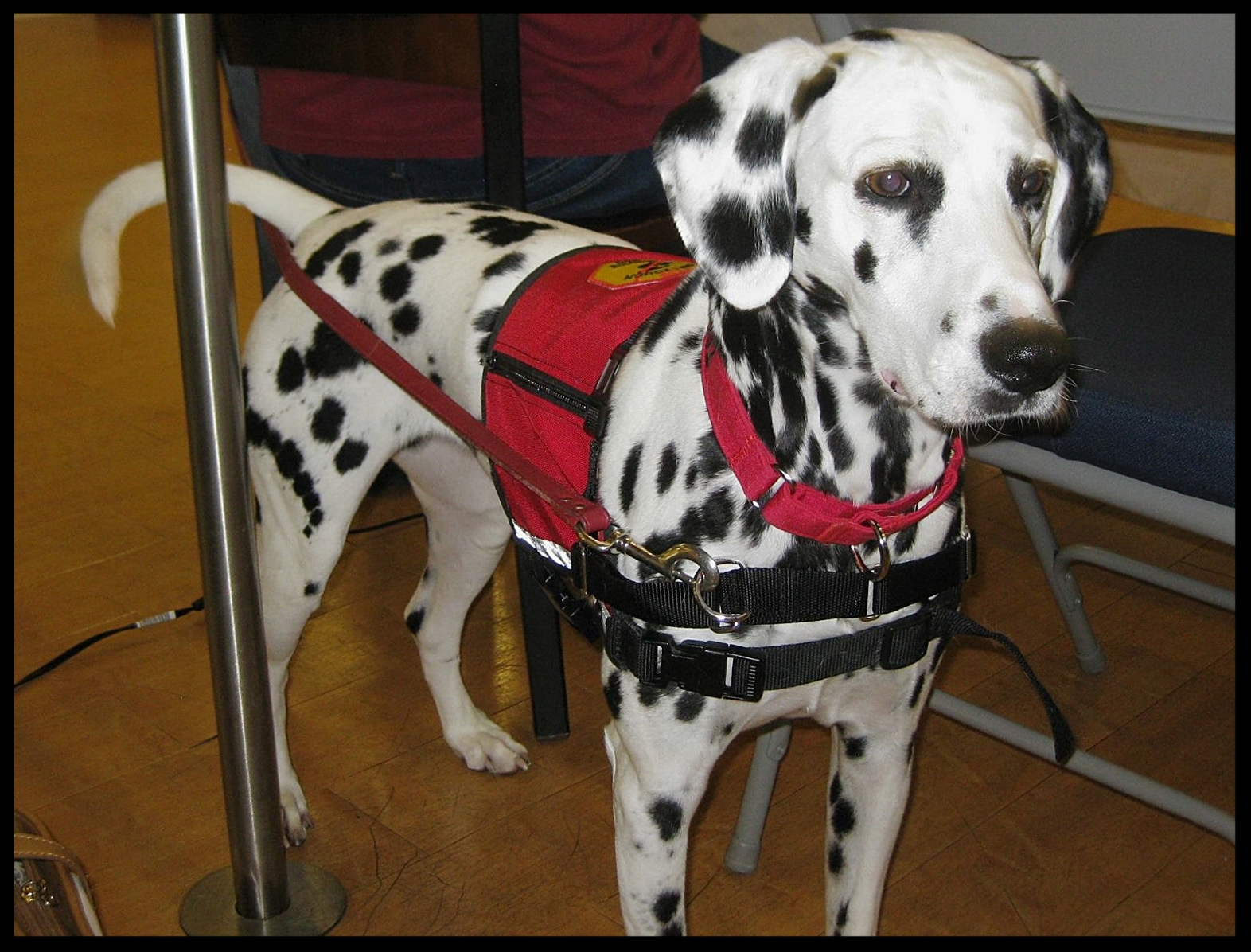My book, Hogan's Hope: A Deaf Hero's Inspirational Quest for Love and Acceptance, is based in the message of hope and achieving one's dreams no matter what the challenge. Over the weekend I encountered a challenge that needed acceptance -- the challenge of needing a service dog and not being accepted.
The United States Department of Justice has written The Americans with Disabilities Act to help those of us who are in need of a Service Dog stating "If you are an employee or owner of any business open to the public including, but not limited to, restaurants, hotels, taxis, shuttles, stores, medical facilities, theaters, parks, health clubs or zoos and you are being given [a] card [stating these requirements], you have probably violated the federal Americans with Disabilities Act (ADA) and the civil rights of the card-holder. Violators of the ADA can be required to pay money damages and penalties."
My experience was hurtful and unnerving to state it mildly. Being told that "you can't have that dog here," "I would never have approved of the dog being here," and "I wasn't informed" hit hard. When I attempted to offer explanation and written information, I received the response "I don't need that card". A fiery-eyed exclamation of "I don't want to talk to you!" came after I tried to alleviate her concern of "not wanting to be sued" by offering her our certificate of insurance. I tried to remain understanding of the person's lack of knowledge but kept thinking to myself that the person had no idea of what a service dog is and why I need a service dog. Even more importantly, what if this were someone else?
I will be the first to admit that beautiful Judea is not what many people picture as the typical-looking service dog. Many imagine a German Shepherd or a Labrador, not a deaf Dalmatian. And, when I am out on book signings about a deaf Dalmatian I had years ago, Judea does draw folks to want to touch or pet her. I honestly believe that any dog, or any animal, who accompanied me to an event would draw more people to come and visit us. Animals who love us unconditionally tend to do that, and Judea is one of the sweetest pups I have been blessed with. But that isn't the heart of the issue.
So, we need to ask ourselves the important question, what is a service or assistance animal?
A service animal is any animal individually trained to perform tasks for a person with a disability (PWD).
- A PWD may be asked what tasks the service animal performs but may not be asked for special certification or identification cards and may not be asked about the disability.
- A PWD may not be charged additional fees to be accompanied by a service animal.
- A PWD accompanied by a service animal must be admitted and may not be isolated, segregated, or treated less favorably than other people.
- There are many types of service dogs, and some even serve multiple purposes.
- Guide Dogs for the blind
- Hearing Dogs for deaf or hearing impaired persons
- Mobility Assistance Dogs for wheelchair-bound persons or those with mobility limitations including balance
- Seizure Response Dogs to protect and help persons with seizure disorders when a seizure occurs
- Diabetes Assistance Dogs to detect blood sugar highs and lows (dogs are scent-trained)
- Mental Health Service Dogs or Psychiatric Service Dogs are task-trained to assist those with PTSD, panic disorders, anxiety disorders, major depression, Autism Spectrum Disorders and much more.
- Any dog can be a service dog, and service dogs do not have to be professionally-trained. The important thing is that the dog is trained to be a working animal.
There is an established Service or Assistance Dog Etiquette
- Some disabilities are obvious and visible. Some disabilities are not obvious.
- Service or assistance dogs guide people who are blind, alert to sounds for the deaf, alert to medical conditions and provide physical support, among other tasks.
- Unless the handler releases the dog, people should not pet, talk to, or make eye contact with the animal. Nor should people call to, whistle at, or otherwise distract a working dog.
- Interfering with a service or assistance dog is against both state and federal law.
- Some individuals may elect to train their own service dogs. There are diverse reasons for this decision cited by owner-trainers, including the failure of existing programs to answer unique needs, closed waiting lists of pre-established training organizations, and extensive knowledge of dog training. Owner-training of one's service dog is permitted, and becoming more common, in certain countries, primarily in the U.S. and, to a lesser extent, in both England and Ireland.
- In the U.S., service dog owner-trainers may opt to train breeds not commonly associated with service dog work, a fact which has led to both great success and great controversy, as the primary federal law addressing service dogs "does not restrict the type of dog breeds that can be service animals."
The need to control often obliterates the opportunity of accepting one another. Statements such as "I manage this [area]!" rather than reaching out in an attempt to understand or learn the circumstance create great divides and even greater hurt of exclusion.
My reason for writing this particular blog on this particular issue is to bring a brighter light onto the issue of acceptance. My hope is that we can accept each other as we are and not as another person believes we should be; that we can reach out in kindness and empathy and not hasty conclusions; that we will actively listen and really communicate with each other rather than shut the other person out; that we attempt to understand rather than jump to any rash judgment. I believe in the goodness of each person and forgiveness is a must. I truly don't want anyone else to be subjected to rejection. I hope for love and for acceptance of our individual challenges.
God bless.
May we all learn from our canine companions who, according to a study done by Goldsmiths College in London, " demonstrate behaviors consistent with an expression of empathetic concern." Let us all care for the needs of each other.


